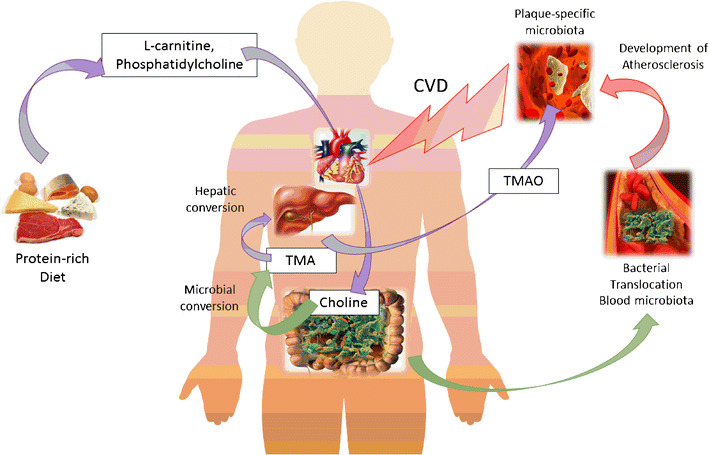Fig. 1.

Gut microbiota and its impact on the cardiovascular system. Products from a protein-rich diet, such as L-carnitine and phosphatidylcholine, may be metabolized into choline, which is converted to trimethylamine (TMA) by the gut microbiota. TMA may be oxidized into the liver to form TMA-N-oxide (TMAO), which can promote the formation of atherosclerotic plaque [28••]. On the other hand, diet-induced gut microbiota dysbiosis may result in bacterial translocation into the systemic blood flow, where a blood microbiota (almost 90 % Gram-negative bacteria) may become established [40••]. Subsequently, atherosclerotic plaques may develop and promote atherosclerosis and cardiovascular diseases. Interestingly, a plaque-specific blood-like microbiota exists, and it is dominated by Gram-negative bacteria (Proteobacteria phylum) as well [39]
